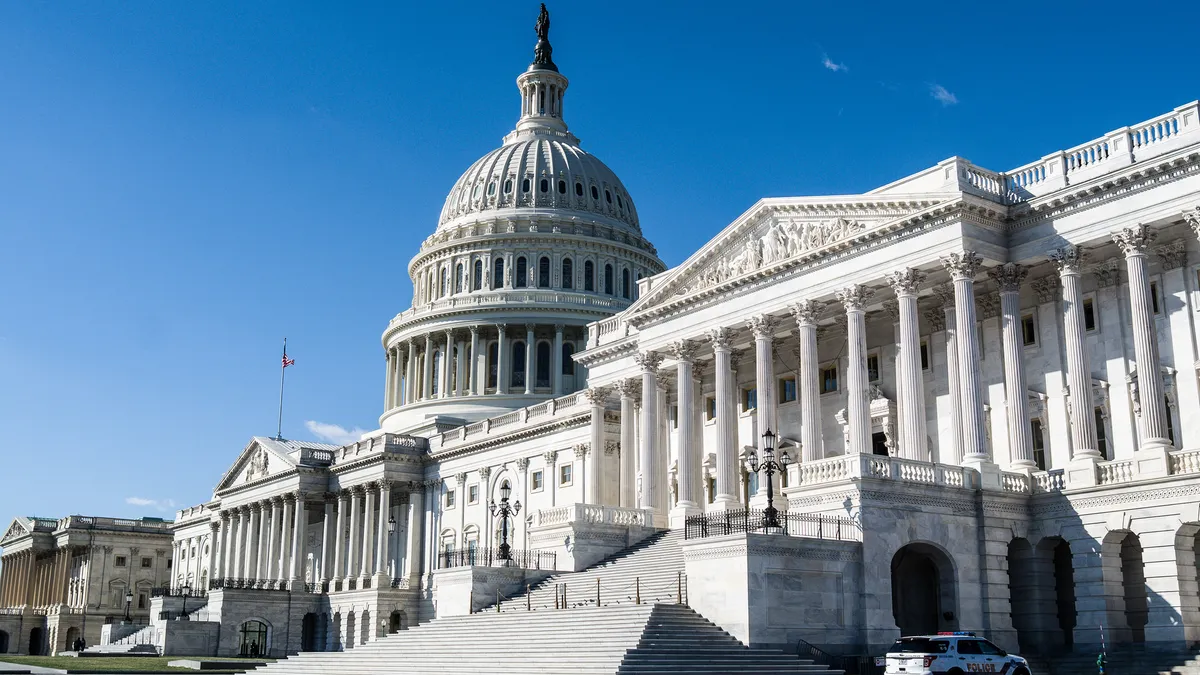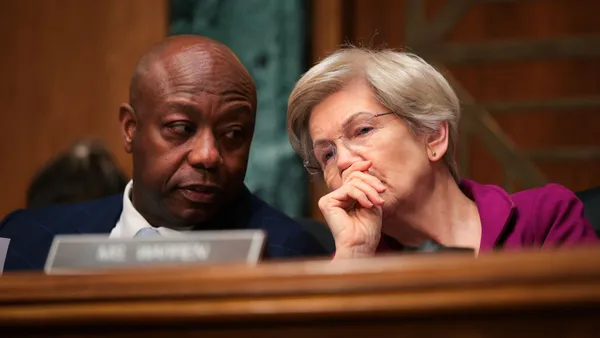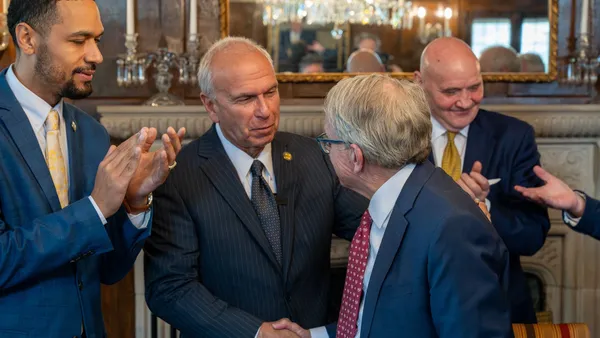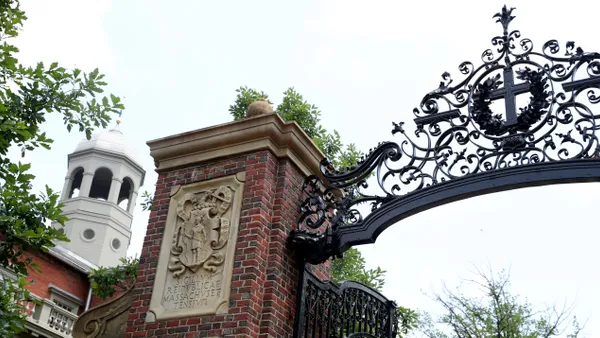Dive Brief:
- A bipartisan bill announced Thursday in the U.S. House of Representatives would raise the bar for accreditors in an attempt to prevent college closures and lessen the blow to students when they do occur.
- Co-sponsored by Reps. Donna Shalala, D-Fla., Peter King, R-N.Y., and Sean Casten, D-Ill., the bill would require accreditors to ask for a teach-out plan or agreement if a college fails to meet certain financial standards, and it stipulates that they must report complaints about institutions to the U.S. Department of Education and state agencies.
- Though not specific to for-profit colleges, the bill comes as Congress raises scrutiny of the sector amid a spate of abrupt closures in recent years. The legislators hope to include the bill in the House's reauthorization of the Higher Education Act (HEA).
Dive Insight:
More than 330 colleges and universities closed between the 2008-09 and 2016-17 academic years, according to data from the National Center for Education Statistics (NCES). Of that count, nearly 80% were for-profit colleges and around 20% were private nonprofits.
Across all institutions, one-third of those closures happened in the 2017-18 academic year alone, per NCES data. Most occurred at for-profit colleges, where receding enrollment, the interests of bottom-line-driven investors and regulations have contributed to the squeeze.
That appears to be continuing. In the 2018-19 academic year, three successive for-profit system closures left tens of thousands of students looking for ways to finish their degrees. And it raised questions about whether the financial responsibility composite score that is used to evaluate an institutions' health is sufficient given the lag time in reporting and potential for misrepresentation.
That uptick in closures has legislators' attention. The latest bill calls on accreditors to require that a college submit a teach-out plan if:
- The college fails to meet financial responsibility requirements.
- An independent audit finds financial weakness or an inability to operate as a going concern.
- The college is placed on probation, show-cause or similar status.
- It is participating in Title IV under a provisional program participation agreement.
For more dire cases, the bill notes, a full teach-out agreement is required and must be approved by the accreditor.
Clare McCann, deputy director for federal higher education policy at New America, which endorsed the legislation, called firming up the requirements around teach-out agreements a "huge improvement." While current law and regulation permit accreditors to call for teach-out agreements, accreditors tend to ask for them even more rarely than they do the less official teach-out plans, she said.
Jamienne Studley, president of accreditor WASC Senior College and University Commission (WSCUC), said in a statement emailed to Education Dive, that the bill "reflects or complements current practice," though she acknowledges that it adds "some detailed expectations in each case." For accreditors like WSCUC, those practices include submitting complaints, monitoring institutions' financial health and helping develop teach-out plans.
"WSCUC agrees with the general objective of the legislation to identify, closely monitor and manage the student protections at fragile institutions that may be at greatest risk of closure," she wrote. "This bill largely reflects where we, and I believe many other accreditors, are moving."
It's not the only attempt to increase oversight of struggling institutions, particularly for-profits. In July, the House, led by Shalala, passed legislation that would require the U.S. Department of Defense to audit for-profit colleges with weak financials that enroll military members and keep a public list of how much Tuition Assistance funding institutions receive.
Extending oversight of higher education beyond the Ed Department also suggests that not everyone is comfortable with the way the department evaluates colleges, Ben Miller, vice president for postsecondary education at the Center for American Progress, told Education Dive in July. That's in part because of the lag time from when the financial measures used to calculate the composite score are calculated.
Two Democratic legislators also recently asked six private equity firms with investments in for-profit colleges to detail their financial practices such as fees, marketing and returns at those institutions. Private equity buyouts of for-profit colleges have been linked to higher student borrowing and lower graduation rates. Two of the three major for-profit closures in the 2018-19 academic year were backed by private equity.
Nonprofit colleges are also under the microscope. In Massachusetts, the state House approved a bill this week that would penalize colleges for not meeting financial transparency measures. New England has been home to a large chunk of independent institutions that closed in the last few years.
For accreditors, "it's a balance to strike between the first sign of significant trouble … and jumping the gun," McCann said of the proposed legislation. "[T]here might be times before this where accreditors can and should use their discretion to request a teach-out plan, but this goes one step further and says if these things happen, the accreditor can't not request a teach-out."















